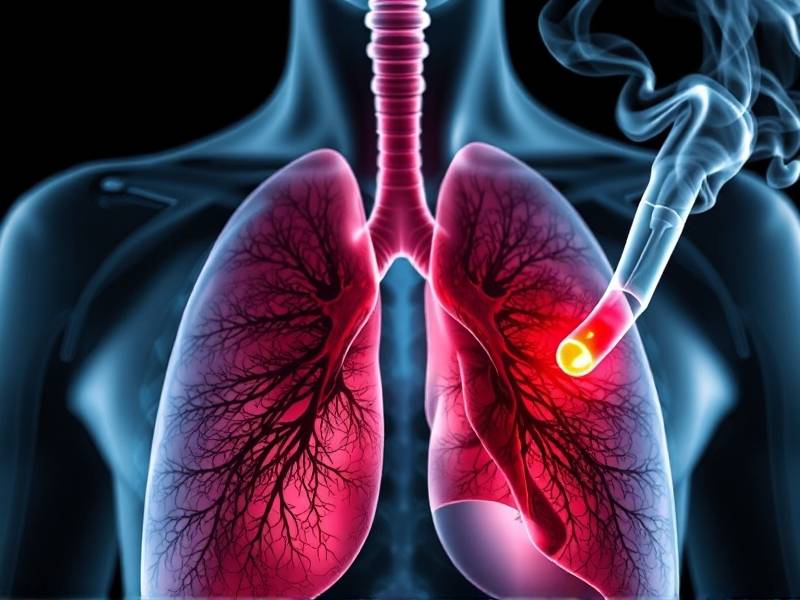Can Your Lungs Really Heal When You Quit Smoking?
Can Your Lungs Really Heal When You Quit Smoking?
Introduction: Smoking has been a significant health concern for decades, with numerous studies highlighting the detrimental effects on the human body. One of the most affected organs is the lungs, which bear the brunt of tobacco smoke's toxic substances. The question that often lingers in the minds of smokers is whether their lungs can truly heal once they quit smoking. In this article, we will explore the healing potential of the lungs and provide insights into how quitting smoking can lead to improved lung health.

Section 1: Understanding Lung Damage Smoking causes a range of harmful effects on the lungs, including inflammation, coughing, and reduced oxygen supply. Over time, these effects can lead to chronic conditions such as chronic obstructive pulmonary disease (COPD), emphysema, and lung cancer.

Section 2: The Healing Process When a person quits smoking, their lungs begin to heal almost immediately. Here's how it happens:
Subsection 1: Improved Oxygen Supply Within just 24 hours after quitting smoking, your body starts to eliminate carbon monoxide from your blood. This process allows your heart and brain to receive more oxygen, improving overall health.
Subsection 2: Reduced Inflammation Quitting smoking reduces inflammation in the airways and alveoli (air sacs) of the lungs. This reduction in inflammation can help alleviate symptoms such as coughing and shortness of breath.
Subsection 3: Increased Cilia Function Cilia are tiny hair-like structures that line your airways and help to trap and expel mucus and debris from your lungs. Smoking damages these cilia, but quitting smoking allows them to regrow and function more effectively.
Section 3: The Role of Time The rate at which your lungs heal after quitting smoking varies from person to person. Here's a general timeline:
Subsection 1: First Year In the first year after quitting smoking, you may notice significant improvements in lung function. The risk of heart disease decreases by half compared to a continuing smoker.
Subsection 2: Five Years Post-Quitting After five years without smoking, your risk of stroke drops significantly, similar to that of someone who has never smoked.
Subsection 3: Ten Years Post-Quitting Your risk of lung cancer decreases by half after ten years without smoking compared to a continuing smoker.
Conclusion: While it's true that damaged lungs cannot fully revert back to their pre-smoking state, quitting smoking is still one of the best ways to improve lung health. By understanding the healing process and setting realistic expectations for improvement over time, individuals can be motivated to kick the habit for good. Embrace a smoke-free lifestyle for better lung health today!
